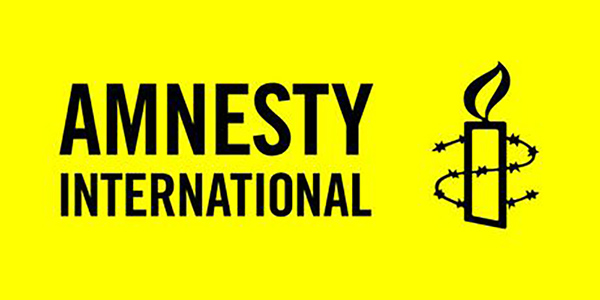- Canadian companies must take responsibility for human rights abuses abroad, says human rights organization
Amnesty International is welcoming news that a group of Eritrean plaintiffs have reached an out-of-court settlement in a lawsuit against Canadian mining company, Nevsun Resources.
The case, filed in British Columbia in November 2014 by former mine workers Gize Yebeyo Araya, Kesete Tekle Fshazion and Mihretab Yemane Tekle, alleged that Nevsun was responsible for benefitting from gross human rights abuses such as slavery and forced labour, torture, and crimes against humanity during the construction of its copper and gold mine in Eritrea.
The terms of the settlement – which concludes years of legal wrangling across three continents – are confidential.
“This settlement speaks to the incredible courage of the mine workers who came forward with their horrific experiences of torture, slavery, and forced labour while working at the mine,” said Ketty Nivyabandi, Secretary General of Amnesty International Canada. “With this groundbreaking lawsuit, these individuals helped pave the way for corporate accountability overseas. Canadian companies must take responsibility for alleged human rights abuses associated with their operations, not just on Canadian soil, but anywhere in the world.”
Nevsun fought against the case being heard in Canada all the way to the Supreme Court of Canada. Amnesty International was granted ‘friend of the court’ status in the appeal hearing and together with the International Commission of Jurists presented arguments about the right to an effective remedy under international law for victims of corporate human rights abuses. In a landmark ruling, the Supreme Court dismissed Nevsun’s appeal and allowed the case against the company to proceed in BC. The Court affirmed that customary international law applies both to states and corporations, making it clear that companies may go to trial in Canada over serious allegations of this nature.
This decision was significant because, in cases of alleged human rights abuses by Canadian mining companies overseas, foreign plaintiffs face immense legal barriers when they attempt to bring lawsuits before Canadian courts. For many years, Canadian courts declined jurisdiction to hear corporate abuse cases, ruling instead that these cases should be heard in the country where the alleged harms occurred. In States without an independent judiciary or constitution, such as Eritrea, the idea that a case against a powerful foreign company for human rights harms could proceed fairly and without interference is highly unlikely. This case underscores the urgent need for legislation requiring Canadian companies to conduct human right due diligence throughout global operations
Nevsun was acquired by Zijin Mining Group Company in late 2018.
For more information about the case, please see Amnesty International’s legal brief on Nevsun Resources Ltd v. Gize Yebeyo Araya et al.
Addendum:
Amnesty International wishes to confirm that it has not seen the confidential settlement reached in this matter. Amnesty International has had no discussions regarding the terms of the settlement with the plaintiffs or the plaintiffs’ legal counsel, and the terms were in no way disclosed to us. Amnesty International therefore has no knowledge about the terms of settlement, including whether or not it involves financial compensation of any amount. Any direct or indirect implication to the contrary would be inaccurate.
Media contact: Lucy Scholey, Media Relations, Amnesty International Canada (English branch), 613-853-2142, lscholey@amnesty.ca













